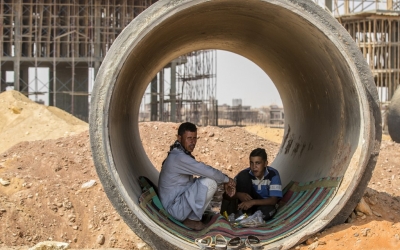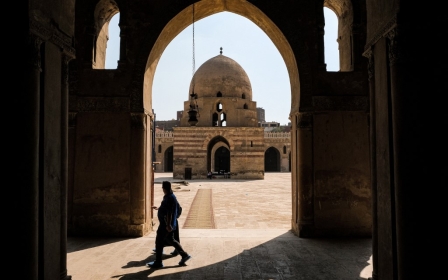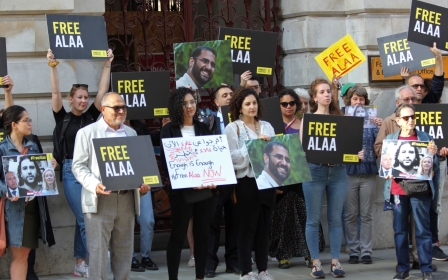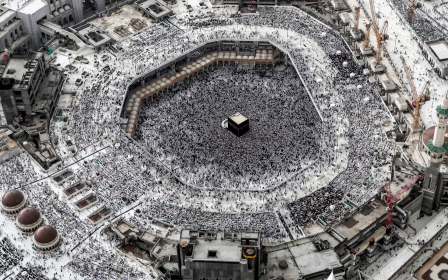Arabic press review: Egypt's external debt increased by 8.5 percent in three months
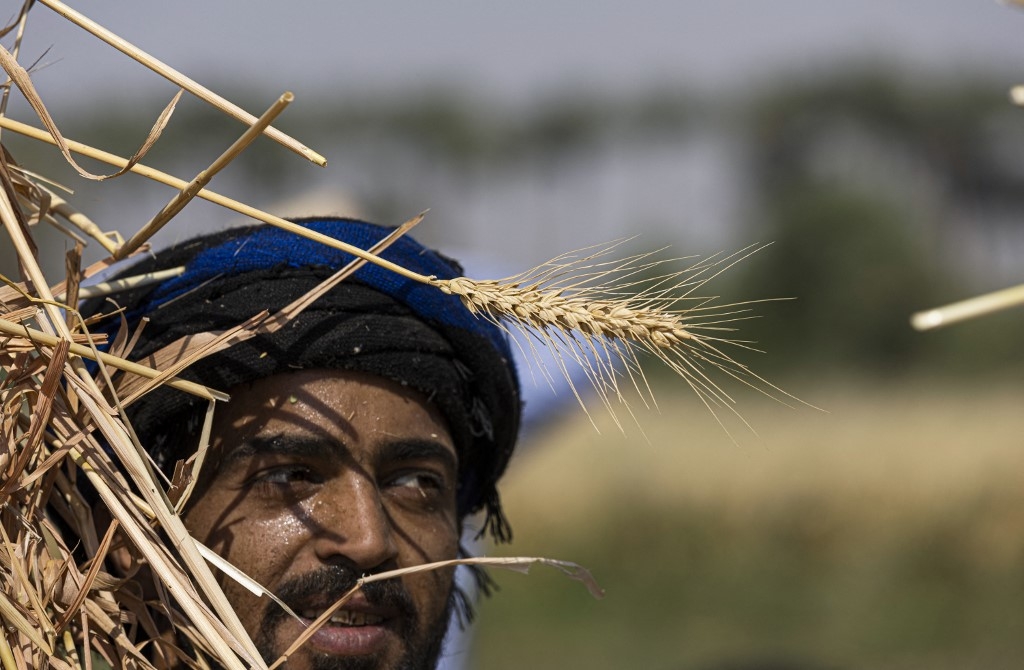
Egypt's external debt rises
Egypt's external debt surged to $157.8bn at the end of March from $145bn at the end of December. The increase was about 8.5 per cent within three months, according to a report published by Al-Araby al-Jadeed newspaper.
Egypt has increased its external borrowing since President Abdel Fattah el-Sisi led a coup against his predecessor Mohamed Morsi in 2013, raising the debt value from $38.38bn in March 2013 to $157.8bn in March 2022, with an increase of about 311 percent.
The crises of Covid-19 and the Russian war on Ukraine led to an increase in the pace of external borrowing, which triggered the Egyptian government to raise the idea of selling state assets to creditors, especially Gulf states, instead of repaying debts, according to the London-based newspaper.
In his statements at the end of June, Egyptian Finance Minister Mohamed Maait said that his country will resort to other alternatives to the hot money in financing the budget after it had received three shocks within four years causing a large percentage of losses in these funds.
The increased global interest rates, the weakness of the Egyptian pound and investors' caution about emerging markets indicate that Egypt will find it difficult to finance an expected deficit of $30bn in the general budget for the fiscal year that began on 1 July, according to Al-Araby Al-Jadeed.
Saudi domestic flights in price hike over Eid
The prices of domestic flights in Saudi Arabia have increased by more than 300 percent, according to a report published by the Saudi Al-Watan newspaper.
Domestic airports in Saudi Arabia, a total of 15, are witnessing active travel in conjunction with the summer holidays and the advent of Eid al-Adha.
In March, the Saudi government announced the cancellation of all precautionary measures it had imposed due to the Covid-19 pandemic, which led to an increase in the number of travellers.
An investigation by Al-Watan newspaper indicated a massive increase in the prices of domestic flights, which ranged between 32 and 314 percent.
The report compared the prices of flights on 25 June and the prices five days later.
It found that the flights between Dammam and Riyadh recorded the lowest rate of increase (32 percent), while flights from Riyadh to Jeddah recorded a rise of 259 percent. Likewise, flights to the city of Taif increased in price by 314 percent, and to Madinah by 311 percent.
Kuwait prosecutes former minister in LA
A court in Los Angeles started to consider a new case filed by Kuwait against the former minister of defence, Khaled al-Jarrah Al Sabah, over the alleged purchase of luxury real estate with state funds, according to the Kuwaiti Al-Rai newspaper.
The court began to hear the case after the Kuwaiti government filed it on 20 May, weeks after the Kuwaiti Court of Ministers acquitted former prime minister, Sheikh Jaber Al-Mubarak Al-Hamad Al-Sabah, Khaled al-Jarrah, and others of criminal charges relating to the same allegations.
The new case filed before the Los Angeles Superior Court focuses primarily on al-Jarrah, who served as defence minister from 2013 to 2017.
"The Kuwaiti government filed the case due to its claim that the money spent by Al-Jarrah for luxury real estate in one of the most prestigious neighbourhoods of the US County of Los Angeles are Kuwaiti public funds.
"Accordingly, the State of Kuwait has the right to recover the amount that will be proven by litigation," according to Al-Rai.
Ukraine minister: Losses from Russia's invasion may exceed $1 trillion
Ukraine’s Foreign Minister Dmytro Kuleba has told a Saudi newspaper that the international community will end the war in his country by applying more severe sanctions against Russia, and force it to accept a political solution later on.
In the exclusive interview with Saudi Arabia's Asharq Al-Awsat, Kuleba said that the support of partners and the Ukrainian resistance had thwarted the Russian invasion plans.
"Over the years, we have worked to reform our military, including with the support of partner countries... So, the result was clear on the battlefield,” Kuleba said.
"The goal of the Russians was to destroy Ukraine as a country within days; they said so explicitly from the beginning. That is why they pushed their full military power against us from all directions in the early hours.
"However, they greatly misjudged Ukraine's ability and willingness to defend itself. After Ukraine thwarted these aggressive plans, Russia was forced to abandon its primary goals.”
As for the economic repercussions of the war on Ukraine, Kuleba said: "It is difficult to set accurate numbers while the war is still raging, but Ukraine’s gross domestic product is expected to decline by at least 30 per cent in 2022."
The Ukrainian minister said that the Russian invasion has so far damaged or destroyed up to 30 per cent of Ukraine's infrastructure with a cost of at least $100bn. The total economic and infrastructure losses may exceed $1 trillion, he added.
"We are very grateful to our partners who provide Ukraine with huge financial, humanitarian and military assistance. I urge our friends to continue and increase them because every day of war brings more destruction."
He added that Ukraine needed more military aid, saying, "There is a need for more heavy weapons and ammunition.”
*Arabic press review is a digest of news reports not independently verified as accurate by Middle East Eye.
Middle East Eye propose une couverture et une analyse indépendantes et incomparables du Moyen-Orient, de l’Afrique du Nord et d’autres régions du monde. Pour en savoir plus sur la reprise de ce contenu et les frais qui s’appliquent, veuillez remplir ce formulaire [en anglais]. Pour en savoir plus sur MEE, cliquez ici [en anglais].


